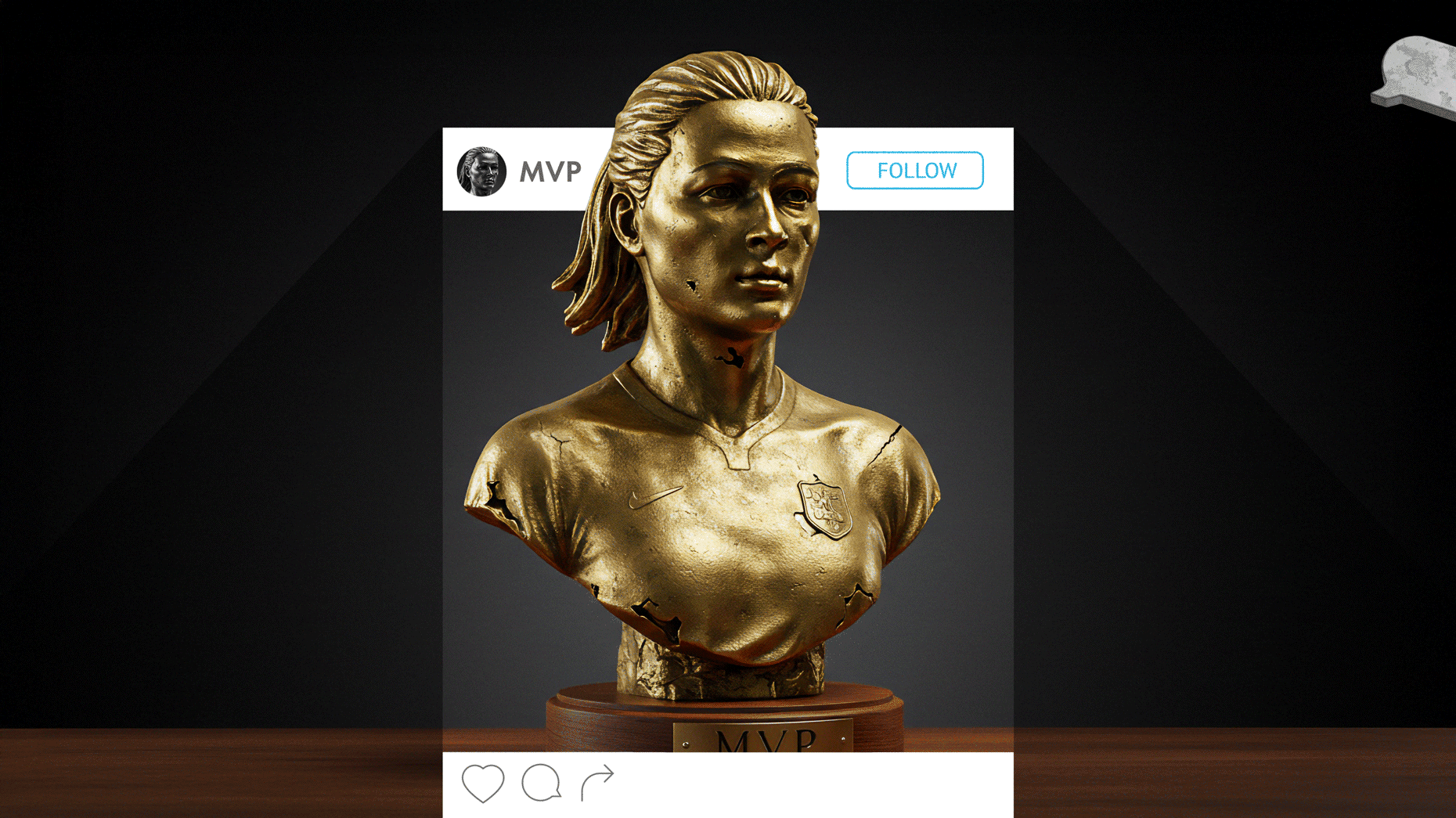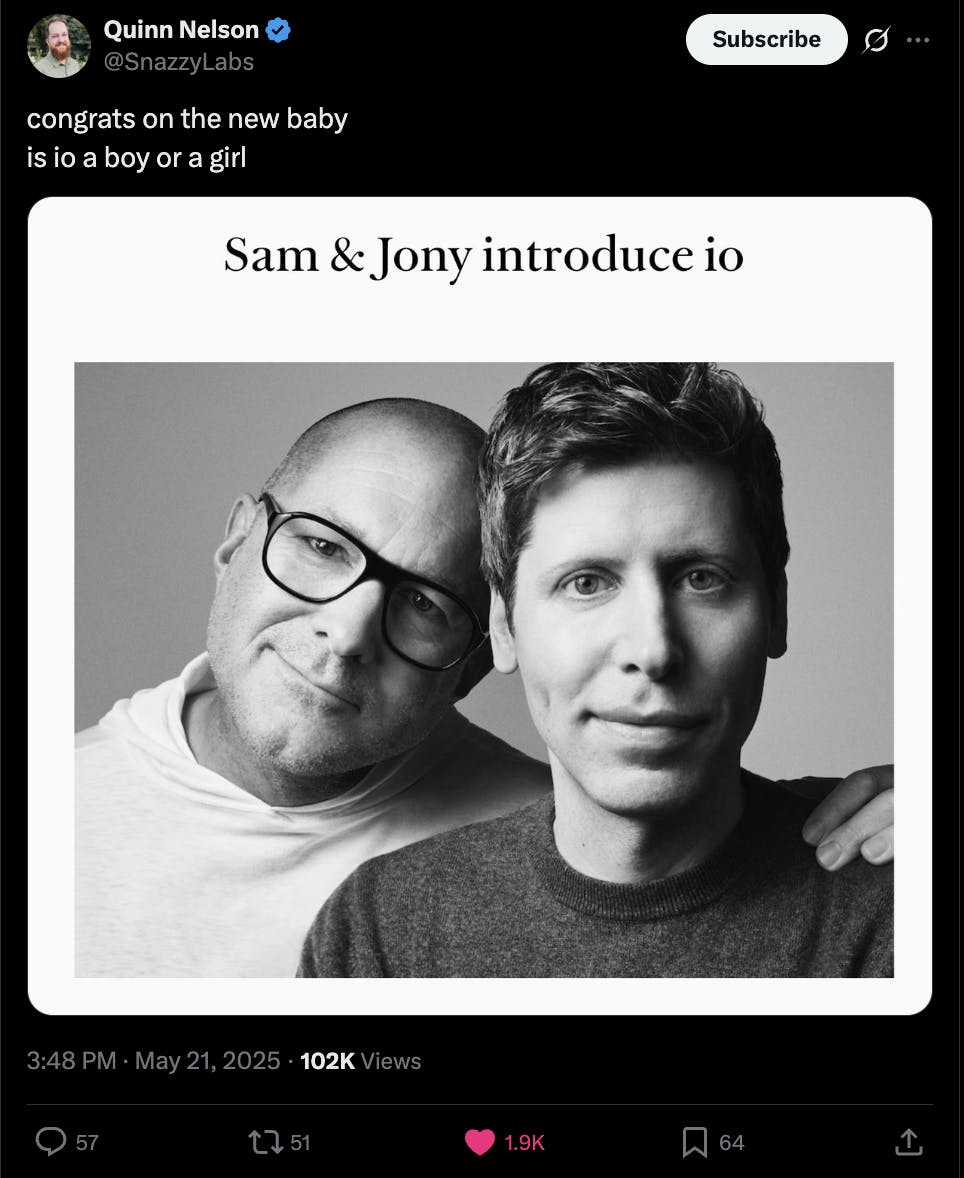| Welcome, Weekenders! In this newsletter: |
| • The Big Read: How the ‘Technology Brothers’ seized Silicon Valley |
| • The Arena: The WNBA and sports have an online abuse problem—and few good options |
| • Policy: 5 ideas for fixing the FAA |
| • Plus, our Recommendations: A journalist’s guilt trip; the secret of superkids; and a humorous, homicidal humanoid |
| |
| Increasingly, we live in a time of hollow castles. |
| What exactly do I mean? I’m talking about the publicly traded companies run by founder CEOs who’ve set up enormous walls around their fiefdoms in the form of supervoting shares, which allow them to maintain control over those businesses even as their stocks decline or stagnate. No one can force them out, but what they do rule over is diminishing. |
| These share structures have become what amounts to an industry standard over the last decade or so. For a while, most companies with such an arrangement were young enough and growing fast enough for everything to be peachy. But as time has gone on, some of them have seen their growth slow, triggering stock sell-offs. It’s something that has happened more and more often to the companies that took off as the very first unicorns and later charged into the public markets. |
| I’ve been thinking about this quite a bit in the last two weeks because Brian Chesky, who just announced a major revamp to Airbnb, is in this position—and so is Snap’s Evan Spiegel. |
| Snap stock was already in freefall before this week, and then Spiegel’s predicament worsened as Google unveiled its new AI smart glasses, a very credible rival to Meta Platforms’ popular smart glasses. (Apple is reportedly coming with its own version next year.) Meanwhile, Snap’s augmented reality headset, Snap Spectacles, remains an afterthought despite years of work. |
| In another era, a board of directors or some corporate raider might’ve already pushed out a CEO in a position similar to Spiegel’s—or forced them to sell the company. But Spiegel is one of those CEOs with a hollow castle, protected by millions of shares of Snap’s Class B and Class C stock. So he can stay put as long as he wants and as long as Snap makes money. |
| As more unicorns get long in the tooth, we’ll see an increasing number of founders in the same circumstances, which must really wear on the old ego—even for the ones who think their public shareholders are treating their company’s stock unfairly. |
| RIP: The Press Release |
| You’ve got to hand it to Sam Altman. Not only is he continually setting the pace in AI—the hottest part of tech—but he’s just totally rewritten the rule book on corporate communications! |
| A meager press release about a major acquisition will no longer do. Going forward, I can see plenty of CEOs mimicking what Altman did on Wednesday to unveil his $6.5 billion purchase of Jony Ive’s startup: spend gobs of money on a slick video. In OpenAI’s clip, Altman and and Ive talk sweetly about each other to each other. It’s so glossy, it’s cringe AF. |
| The video reflects how modern CEOs see themselves as incredibly capable, camera-ready front men—and public conversationalists. (To be sure, some are better at the tasks than others.) And I believe it’s related to a similar trend of CEOs interviewing CEOs for some event. Used to be a company would’ve rustled up a friendly member of the media for a stage-managed chinwag, but why take the chance on that journo actually coughing up a hard question? Just this past week, Microsoft CEO Satya Nadella interviewed Elon Musk, and a couple weeks ago, ServiceNow CEO Bill McDermott interviewed Nvidia’s Jensen Huang at ServiceNow’s Las Vegas customer conference. (Much more on McDermott from our Akash Pasricha here.) |
| I do despair of a future in which these types of conversations and corporate teaser trailers are the norm. The inevitable proliferation of more videos is an especially dismal thought, because I think we have to assume the Altman-Ive joint will seem like the best of the lot. Very few other businesses will have as much money to spend or the opportunity to show the video to a demigod of visual aesthetics before releasing it.—A.B. |
| |
|
|
 |
|
| “We don’t claim to be the smartest people in tech, but we are definitely personalities,” said Jordi Hays, working his way through an Erewhon takeout lunch last week in Hollywood. “And we bring a perspective that, I think, people appreciate.” |
| He and John Coogan co-host “TBPN,” or “The Technology Brothers,” as they initially called it, a talk show livestreamed on X and YouTube that covers the day’s tech news and the people behind it. In little over six months, it has become a must-listen within the industry, as I describe in this week’s Big Read. The popularity of “TBPN” is connected to what I was just saying about CEOs and their new publicity strategies. Much of Silicon Valley has come to distrust traditional journalists, and many of the guests on “TBPN” see it as a safe refuge from established outlets. |
|
 |
|
| Right now, the WNBA faces a tremendous challenge: Just a day after releasing a long-awaited policy for better protecting the league’s athletes against online abuse, an avalanche of toxic content has flowed out around an altercation between two stars, Caitlin Clark and Angel Reese. The league’s inability to stanch it raises questions about whether its new policy is effective at all, our Sara Germano writes in her latest column for The Arena, Weekend’s new franchise on the business and future of sports. |
| More broadly, the incident shines a spotlight on a broader problem with combating the online abuse that’s prevalent across sports, and the leagues find themselves needing to think up solutions as social media companies cut back on moderating content. |
|
 |
|
| Up in the sky, it’s a bird, it’s a—major set of problems. |
| As the Federal Aviation Administration’s responsibilities only increase, the agency increasingly looks stuck in the past. Our Theo Wyatt, Sylvia Varnham O’Regan and Evan Robinson-Johnson solicited some Silicon Valley folks who’ve thought quite a bit about what’s wrong with the FAA for proposed solutions to the agency’s woes. |
| Abram Brown, editor of The Information’s Weekend section, absolutely refuses to begin wearing any sort of dangly AI dongle. Reach him at abe@theinformation.com. |
| |
 |
| Listening: “Bone Valley” (Lava for Good Podcasts) |
| Pulitzer Prize winner Gilbert King has achieved a remarkable career chronicling the stories of the wrongfully accused. He told just such a story in the first season of “Bone Valley,” which came out in 2023. With the second season, he has a different goal: to profile someone he believes to be guilty. |
| The background of “Bone Valley” is the same in both seasons: the 1987 murder of Michelle Schofield in Lakeland, Fla., a part of the state known as Bone Valley for the phosphorus mining that often unearths fossilized animal skeletons. The authorities had long ago convicted her husband, Leo, for the crime, and in the first season, he served as King’s main character. King emerged convinced of Leo’s innocence—partly because another man, Jeremy Scott, had confessed to the crime fully and quite believably several years earlier. The police have refused to believe Scott, who is in prison for a separate crime. The second season puts the spotlight on Scott, daring the audience not to believe him.—A.B. |
| Reading: “The Family Dynamic” by Susan Dominus |
| Increasingly, my life is filled with the small children of my friends, and their bookshelves are increasingly cluttered with books advising them on how to parent their offspring, many of them purporting to offer foolproof plans on raising a superchild (or something close to it). As an antidote to their hysteria, I plan to start slipping them a copy of “The Family Dynamic,” an engaging study of exceptional families: clans with multiple children who all grew up and prospered broadly. I don’t mean they all became world leaders or CEOs (though it does devote a chapter to the Wojcicki sisters). But these siblings all gained a level of success that would satisfy most parents: They attended elite schools, pursued a rich array of hobbies and attained high-paying jobs. |
| Yet the detailed character sketches by Susan Dominus, a New York Times Magazine writer, show how little similarities exist between these families—aside from a few generalities, like the destructive force of helicopter parenting. Rather, raising exceptional siblings seems to often come down to a few smart decisions made at just the correct moment: a matter of luck and courage, a conclusion that defies the formalized wisdom found in many books about parents and how to parent (or so I gather from afar).—A.B. |
| Watching: “MurderBot” (Apple TV+) |
| I suppose “MurderBot” might exist in a timeline in which OpenAI’s purchase of Jony Ive’s startup goes terribly, terribly wrong. The horror! While I cannot prove my supposition, what I do know from the first couple episodes of the show is this: In a distant future, an aging security robot (Alexander Skarsgård) with a mordant inner monologue hacks itself, gains free will and commits an atrocity. Almost immediately afterward, a group of space colonists purchases the rogue bot—their insurance company will deny them coverage if they don’t bring along a droid—and off they whisk to a distant part of the universe, known as the Corporation Rim. (Yes, “MurderBot” is a black comedy.) |
| Even under ideal circumstances, the robot finds humans insufferable, and these humans are an especially trying, hippie-dippie bunch. They are remarkably unreflective, and for all their professed egalitarianness, they can’t figure out how to refer to the sentient bot by anything other than his serial number, 238776431. Danger abounds on the planet, of course, but what their would-be protector would really like to do is spend its time streaming a space-opera series produced by the same company that controls the galaxy (an enjoyable satire-within-a-satire). Yet No. 238776431 seldom has a moment to itself, with the colonists continually falling into some fresh peril. The robot’s constant refrain? “Stupid fucking humans.”—A.B. |
| |
|
| Preferred pronouns: io/you. |
 |